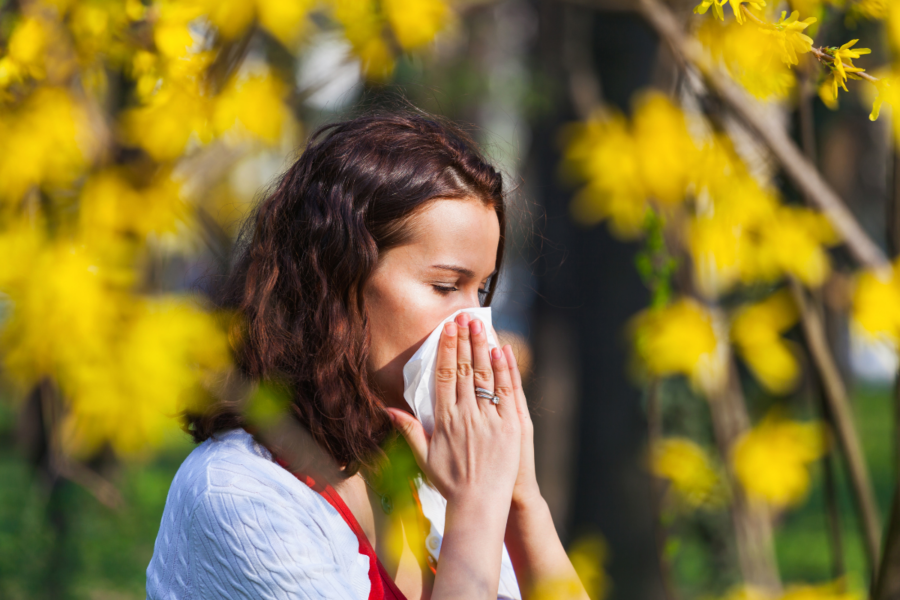Hay Fever Season
How to Take Care of Yourself When the Pollen Count Spikes
Spring is a glorious time of year – the weather gets warmer, the flowers start to bloom, and a general sense of regeneration and optimism fills the air.
Yet for many, Spring is a sign of less poetic ideals – itchy eyes, headaches, sneezing fits, and stuffy noses – hay fever. If you’re one of the millions who dread this time of year, you’re not alone – hay fever (also known as allergic rhinitis) affects around 1 in 4 people in the UK. And for many, it’s worse than just the sniffles.
Hay fever is an allergic reaction to pollen and other airborne allergens, and its symptoms can sneakily wear you down. Alongside sneezing and a runny nose, you might also find yourself feeling constantly tired, struggling with poor sleep, or unable to concentrate clearly – hello, brain fog. These issues can affect your energy, mood, and even your own safety if you’re working in a physically or mentally demanding role.
More than just an inconvenience
It’s common for people suffering with hay fever to soldier on despite feeling rough, but this can have a big impact on both your work and personal life – dealing with hay fever can be very draining.
What’s more, hay fever doesn’t always exist in isolation. It’s possible for hay fever to aggravate or exacerbate existing conditions – such as asthma, eczema, or other respiratory issues, leading to flare-ups or more serious health concerns. In severe cases, it can even result in time off work or hospitalisation.
Worse still, if your job involves being outdoors – whether you’re in construction, landscaping, delivery services, or agriculture – you’re likely facing more intense exposure to pollen, which can make symptoms even harder to manage.
So, what can you do to feel better?
Managing hay fever is about more than stocking up on tissues and taking antihistamines. Small changes to your routine and environment can go a long way in helping you feel better during high pollen days.
Here are a few simple but effective tips to help you get through the season:
- Time it Right
Pollen levels are usually highest in the early morning and late afternoon. If you can, try to limit time outdoors during those peak periods. If flexible hours or remote work are an option, use them to your advantage. - Protect Yourself
Sunglasses (especially wraparound ones) can help keep pollen out of your eyes, and a mask or face covering can reduce how much pollen you breathe in – especially helpful on high count days. - Keep It Clean
Shower and change clothes after spending time outside to avoid bringing pollen indoors. Keep windows closed during high pollen times, and regularly clean surfaces to remove dust and allergens. - Freshen the Air
If you’re indoors most of the day, using an air purifier or keeping your space well-ventilated (when pollen counts are lower) can make a difference. Try to avoid fans that blow pollen around the room and consider drying clothes indoors on high pollen days. - Know Your Meds
Over-the-counter antihistamines can help, but there are many different varieties, and different types work better for different people. If your symptoms are persistent or getting worse, speak to a pharmacist or your GP – there may be better options for you that aren’t available over-the-counter. - Plan Ahead
Keep an eye on the pollen forecast – many weather apps include daily pollen counts now. Knowing when levels are high can help you act early and prepare for the day ahead. - Remember, You’re Not Alone
Hay fever might feel like a small issue in the grand scheme of things, but if it’s affecting your sleep, energy, or quality of life, it deserves attention. Taking a proactive approach – whether that’s adjusting your routine, seeking medical advice, or simply being kinder to yourself when you’re not feeling 100%, can help you get through the season with less stress.
